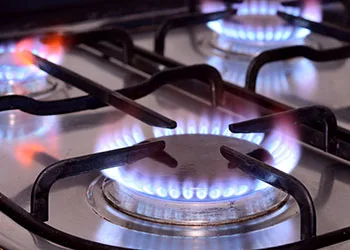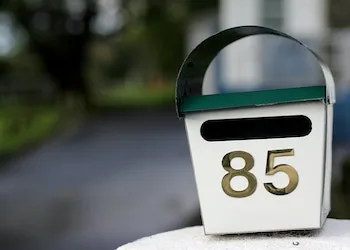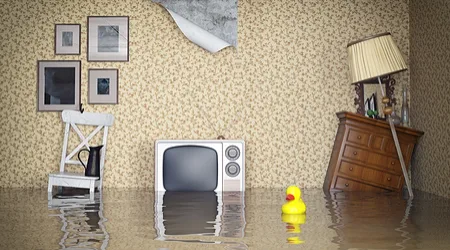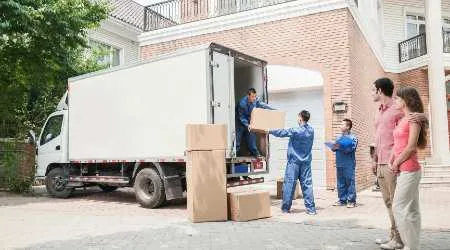There are a handful of things you need to sort out, connect and organise, and the good news is, you can organise most of them well in advance of getting the keys.
This week's module acts as your road-map to ensure everything is taken care of for the big move.
5 things you can do before moving day
1. Sort out your Internet
Can anybody really do without Internet anymore, even if it's for a day? Absolutely not.
This is one of those things you can do weeks in advance if you want to tick it off your list. All you have to do is:
- Get your laptop out and see if your home is connected to the NBN. Just pop in your address using the NBN tracker
- If you're given the green light, start by comparing NBN plans and find yourself the best deal. It'll take you seconds to filter to your price and data requirements
- Get your NBN connection set up and running by following our easy breezy guide. That's it!
Don't have an NBN connection? That's okay. You can opt for a home wireless broadband which uses the same network connection as your mobile, and offers similar speeds and prices to the NBN. Just make sure you get good signals at your property.
If your property has never been connected to the NBN before, your provider will have to send over a technician to get you sorted. This can cost around $300 and a few weeks for the installation to happen.
2. Connect your energy
 This is another easy task you can flick off your to-do list early. Our step-by-step guide will help you get your energy and gas sorted quickly, and help you get the best possible deal, too. In fact, the average Aussie can save $126 a year by simply negotiating a better deal on their energy, so don't waste money you don't need to spend.
This is another easy task you can flick off your to-do list early. Our step-by-step guide will help you get your energy and gas sorted quickly, and help you get the best possible deal, too. In fact, the average Aussie can save $126 a year by simply negotiating a better deal on their energy, so don't waste money you don't need to spend.
First: Compare energy providers
To make sure you're not paying too much for your electricity and gas, consider comparing energy providers before you decide to stick to your current one. If you have your recent energy bill handy, you'll get the most accurate results. You can learn how to read your energy bill here.
Next: Contact your current energy provider
Find out if you can get on a cheaper plan at your new address. Compare it to your results from above. If your current provider can offer you a better deal then well and good. Otherwise, give them ample notice to finalise your last bill.
Switching providers?
If you do decide to switch providers, make sure to read the fine print. Some things to watch out for include:
- Lock-in contracts which can lead to expensive exit fees down the line
- Payment methods that don't charge you extra
- GreenPower options if you're worried about your carbon footprint
- Late fees that a provider may change if you don't pay your bill on time
Follow the steps above to seal off your current energy supply and start a new energy relationship.
Good to know. If you're moving interstate, keep in mind that states like NSW, Victoria, South East Queensland, the ACT and SA have competitive energy markets, and you can easily shop around for the cheapest energy rates. Elsewhere, the government regulates energy prices and your options might be limited.
3. Change your address

Make sure you change your address ahead of moving day. Rather than having to individually contact everyone letting them know you're moving house, you can pay Aus Post to get your mail redirected to your new address.
The service will set you back $33 for 1 month of redirection or $66 for 3 months, and it means that friends and family, your bank and anyone else who sends you bills or mail will be able to reach you.
If you've moved to a different state in Australia, you'll also need to register your vehicle at your new home. Simply Google your state and "car registration" to work out what to do next.
Are you planning to move to NSW from a different state? Then you'll also need to make sure you take out CTP insurance if you have a car. Unlike other states, CTP isn't included when you register your vehicle.
4. Get home and contents insurance

First piece of advice from those who have been there and done that: When you move house, make sure your current home insurance ends one day after you've moved out, and your new insurance policy begins the day before you move into your new home.
This way, if something is damaged on moving day, you're protected at both properties.
There's another benefit to taking out a policy before you move – you can also get your belongings covered while they're in transit, just in case something gets damaged on its way to your new home.
But what insurance do you actually need?
Home and contents insurance is the main one – it's designed to cover the cost of repairs if your house or belongings are damaged or destroyed in an unexpected event like a fire, storm or burglary. You pay a monthly or annual fee, referred to as your premium, and in exchange, the home insurer picks up the bill when something goes wrong.
On a building worth $500,000 and contents valued at $100,000, Expect to pay around the following each month for home and contents insurance:
Average home insurance costs
| Australian states | Building & contents insurance | Contents only insurance | Building only insurance |
|---|---|---|---|
| NSW | $144.13 | $45.86 | $117.20 |
| VIC | $150.17 | $42.22 | $124.14 |
| QLD | $150.57 | $46.25 | $125.03 |
| SA | $140.15 | $46.51 | $111.54 |
| WA | $113.67 | $36.36 | $92.37 |
| ACT | $130.49 | $41.82 | $108.50 |
| TAS | $127.95 | $39.79 | $106.65 |
| Average costs | $136.73 | $42.69 | $112.21 |
*This table was last updated in February 2021.
It's worth mentioning that these quotes are based on a 3-bedroom freestanding home. If you live in North Queensland (anywhere above Rockhampton), you might notice that the average cost of your policy is higher due to the risk of cyclones.
Learn more about how much home insurance costs in Australia
What if you're moving to a unit or townhouse?
In this case, you generally won't need home insurance (also known as building insurance); rather, you'll pay a share of strata insurance, which covers the building and shared common areas.
It doesn't protect any of your belongings in your home though, so you still need to consider getting contents insurance if you want to protect your belongings. If something goes wrong, it can pay to repair or replace items like your laptop, TV or furniture from things like fires, theft and accidental damage.
The good news is it's pretty cheap, too – in fact, you might be able to get contents insurance from as little as $23 a month, depending on the value of the items you insure.
What if I'm renting?
Even if you're only renting, a handful of valuable items can still make it worth getting contents insurance. Because you don't need to worry about building insurance, you'll pay a lot less for a policy – as mentioned above, you can get coverage for as little as $23 per month.

If you don't already have home insurance, you can compare home insurance providers here. Even if you already have a policy, it's worth checking if you're getting good value for your money. Finder research shows you can save up to $1,653 per year by switching to a better deal.
5. Organise removalists

The most tangible step you'll take as a first home buyer is the actual move. Recent first home buyer James Martin shares a bunch of tips to make sure this part of the process is as straightforward and seamless as possible:
- Using online marketplaces, such as Airtasker, can be a good way to source different quotes from removalists in your area. On these platforms you can compare user reviews for each company, and you can see the prices that have been quoted for past jobs, making it easier to get a sense of what's competitive locally.
- If you're looking at more traditional routes, including word-of-mouth recommendations, it's essential you get any agreed quotes in writing.
- Estimating the time that's needed for a removalist service can be tricky. For example, there could be access issues in your old or new home that you'd not accounted for. So it's a good idea to save some extra budget in case things take longer than you expect. Also make sure you agree up front what any extra time will cost you.
- At the same time, try hard not to overestimate the time needed. Tagging on an extra hour or two of work may cost you less than paying a full day rate, and if you lock in the full day, you pay that even if the job finishes early.
- Keep some cash aside for a few takeaways during your first few days. Moving was exhausting and it took a few days for us to even get our plates and cutlery out of their boxes.
What next?
Next – you celebrate! All the hard yards are behind you and you're officially a first home buyer. Pop the cork on that champers; you've earnt it.
You might be working this course and you're not quite at this signed, sealed and delivered stage just yet, which is A-okay – it's just around the corner, and by going through the steps of our e-course, you've taken some giant leaps towards your home ownership dreams.
Ask a question
More guides on Finder
-
Home loan cashback offers
Home loan cashback deals can help you refinance to a cheaper interest rate and get a lump sum cash payment. Compare the latest deals and check your eligibility today.
-
A guide for first home buyers
Use our complete first home buyer guide to make your first home purchase as stress-free as possible.
-
South West Slopes Bank home loans
A community credit union operating in the south west country area of NSW, helping you find the right home loan.
-
The Capricornian home loans
Compare home loan rates from The Capricornian, a credit union in Central Queensland.
-
Greater Bank home loans
Check out home loans from Greater Bank and apply today.
-
ME home loans
ME is an online lender with a simple range of products, including the Basic Home Loan and the Flexible Home Loan. See their rates and fees here.
-
ING home loans
Thinking about getting a home loan from ING? Compare rates and learn more about this lender.
-
loans.com.au home loans
loans.com.au is one of Australia's leading online only lenders with a range of products that have great features and low costs.
-
Community First Bank home loans
Community First Bank is a credit union that offers home loans in addition to other financial products.
-
Best Home Loan Rates Australia
Learn how to compare rates to find the best home loan and start saving money on your mortgage today.
